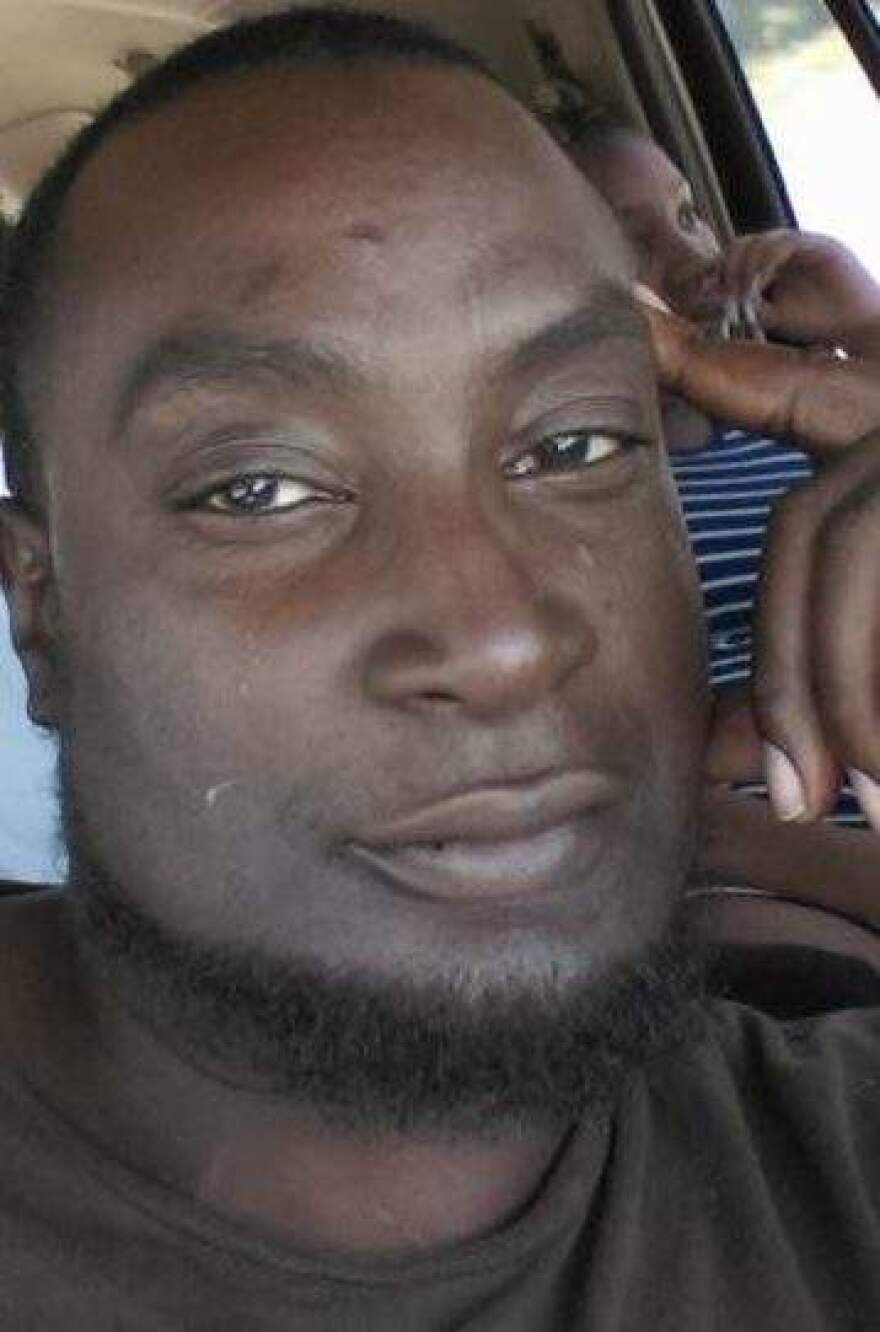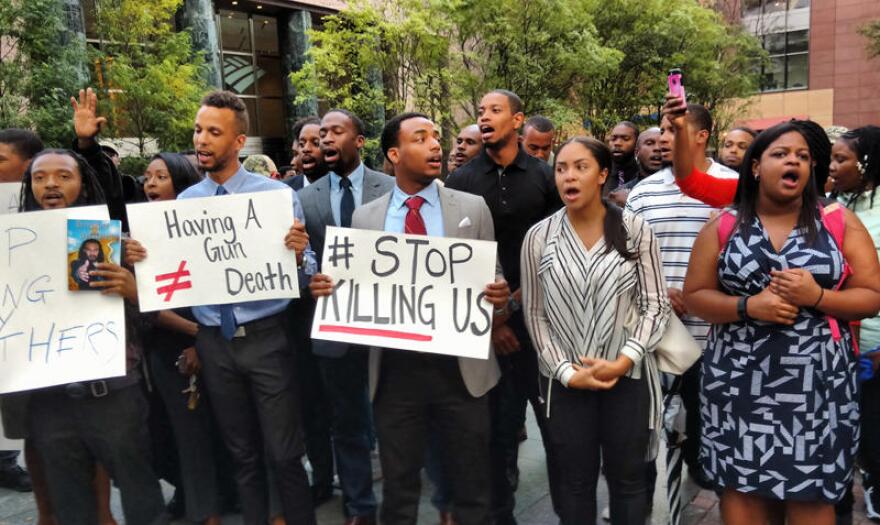
Two years ago Thursday, protests erupted in the wake of the police shooting death of Keith Lamont Scott, a black man who lived in Charlotte.
Scott was fatally shot on Sept. 20, 2016, in the parking lot of a University City apartment complex. Police said they found Scott in a car with marijuana. When he exited his vehicle, police said they saw Scott had a gun. Officers commanded Scott to drop the weapon multiple times. Officer Brentley Vinson, who is also black, said he feared for his life and shot Scott multiple times.
The shooting led to days of protests in Charlotte and a curfew was implemented when protests turned violent. The National Guard was called in. And the cracks in the community became apparent.

Last month Rakeyia Scott, the widow of Keith Scott, filed a lawsuit against the City of Charlotte and Officer Vinson. Vinson is being sued in his official capacity as an officer, and as a citizen for what the suit says is “gross negligence” in the death of Scott.
Scott’s death and the unrest that followed is still in the forefront of his family’s mind and the minds of many in the Charlotte community.
Two years after the Keith Scott shooting, has the city healed? Is Charlotte in a better place than it was?
That’s the question we posed to the city official everyone had eyes on as protests spilled throughout the streets of uptown — then-Mayor Jennifer Roberts.
“There’s not a really simple answer because some of it depends on who you are and what segment of the population you are,” Roberts said. “There are still challenges and if you are a certain segment of this community, you would say, 'No, things have not changed.' But on the other hand, things do feel different.”
Roberts said she sees more collaboration in the community. She also felt a big shift firsthand — a change in leadership. Roberts was voted out of office and Charlotte elected its first African-American female mayor, Vi Lyles, last year.
Protester Braxton Winston became a council member. Others who were outraged and highly critical of the police began to work with officers to better community relations. That was the case for Greg Jackson. He started the group Heal Charlotte, which trains officers on how to communicate in volatile situations when they respond to calls in the community.
“We have a great communication in our neighborhood with our community officers,” Jackson said. “Our kids run to the police car now. Our kids actually look for CMPD to be there — they look for that. I really feel like we had a big change in Orchard Trace. We’ve gone from 77 emergency calls a week to 8 in the last year.”

But not all of the protesters think the city has come very far. Ash Williams, a community organizer with Charlotte Uprising — a grassroots group that formed in the wake of the shooting — is still frustrated by the pace of change. Williams said the city is still struggling to include community activists in the wake of Scott’s death.
“Most of those groups or those task forces that came together were city-sanctioned,” Williams said. “None of them really involved people who were on the ground and who were the actual architects of CLT uprising.
“And so what you have is the same people are making decisions for people who they don’t understand and who they don’t even know," Williams added. "And so, we are trying to change that still two years later.”
Charlotte Uprising maintains the innocence of Raquan Borum, the man who was charged in the shooting death of Justin Carr — a protester who was shot and killed in uptown. The group believes CMPD framed Borum, whose trial is scheduled for December.
CMPD said one of the big takeaways from the shooting was the role of social media and the public’s desire to have information instantaneously. Assistant Chief Vicki Foster said CMPD has tried to do a better job of making information readily available to the public.
“Now, we have a large social media presence," Foster said. "We have a lot of followers. We spend a lot of time and energy putting information out and making sure we’re responsive to people.”
Foster said having more information available via social media two years ago may have helped to curb some of the protests. Although, she said, not all of it.

For Mayor Pro Tem Julie Eiselt, the head of the public safety committee at the time of Scott's death, the aftermath of the shooting has led to a shift in the way she leads as a city council member.
“It changed the way I try to talk. It changes the language I use. The way I interact with people and the way I interact with people that look like me,” Eiselt said. “Because I have the opportunity to change the hearts and minds of people who maybe weren't paying attention. It’s helped me to grow as a person and I think that I have the opportunity to help others see it in a different light and [see] why they should care.”
The city is listening Eiselt said, but there’s still work to do.





